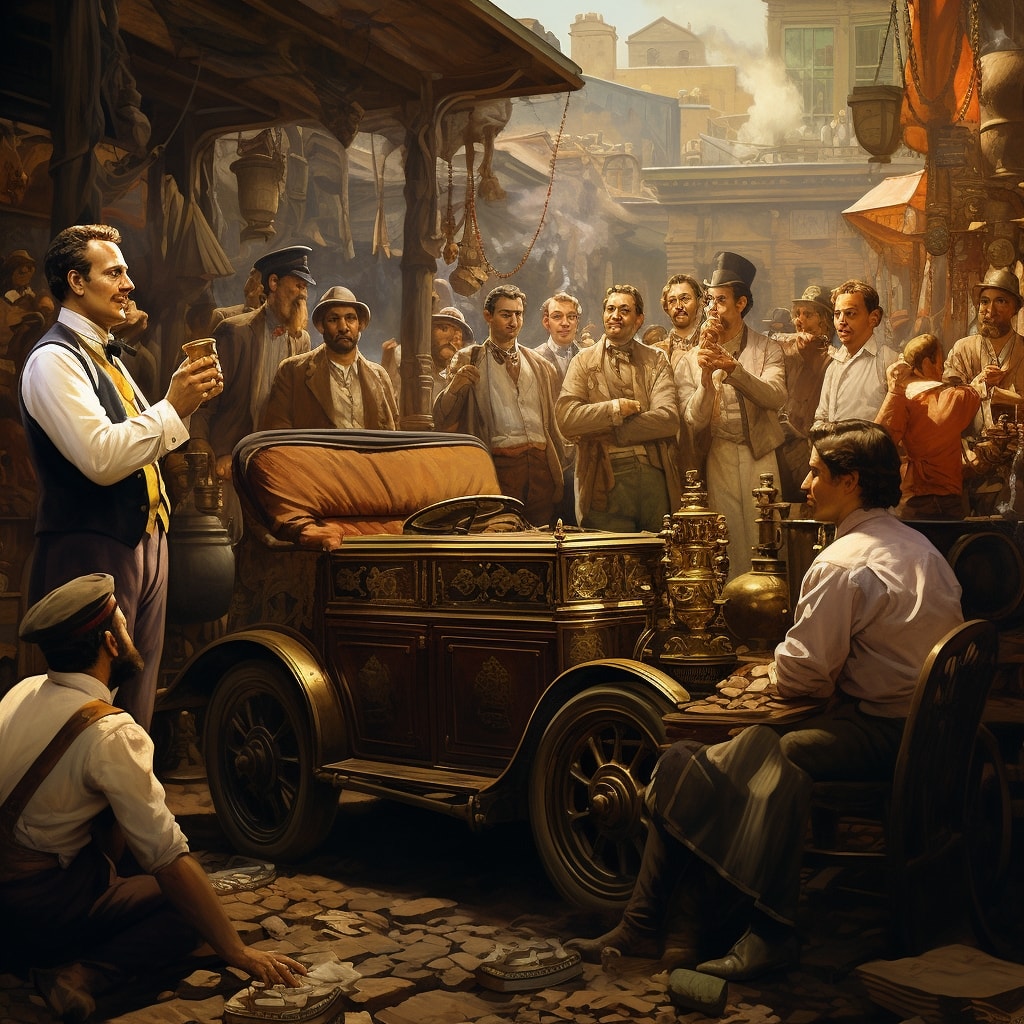Welcome, and thank you for being part of the MyZucoins community! Dive into some important crypto, finance, and tech news to stay ahead.

Crypto Evolution Mirrors Early Automobile Era
A look back at early automobile pioneer Alexander Winton’s memoir reveals an intriguing parallel with the current cryptocurrency industry. Winton, a bicycle manufacturer turned automaker, faced many obstacles when promoting his “horseless carriage” in the 1890s. Much like crypto developers today, he endured mockery, fraudulent competition, and hostility from banks.
Among Winton’s struggles was the challenge of standing out among numerous competitors, some legitimate but others outright frauds. He spoke of questionable automobile ideas, some eccentric, like a mechanical horse-carriage or vehicles run by compressed air and electricity. Yet others were investment scams, exploiting the hype around the fledgling technology. This mirrors the crypto industry, confronted with countless digital coins, some transformative, others fleeting.
The dismissal of Winton’s revolutionary idea also mirrors crypto’s journey. Just as the notion of automobiles replacing horses was laughed off as ludicrous by many, skeptics today dismiss cryptocurrency, pointing to existing digital payment platforms like PayPal. The irony is that these criticisms come at a time when crypto, like the automobile, is beginning to challenge traditional norms in their respective fields.
Finally, Winton’s chronicle showcases early automakers’ collaborative spirit. They shared ideas, tools, and patents, only to later face patent trolling. This resonates with the crypto world, which often works collaboratively thanks to open-source licensing but isn’t immune to such activity. The shared experiences of Winton and crypto innovators show that history has an interesting way of repeating itself and that paths for innovation often rhyme. Read more here.
Lessons from Automotive Pioneers for Emerging Technologies such as Zucoins
The story of Alexander Winton illustrates the challenges that new technology-type products face. In the early days of the automobile, many inventors tried to market their innovative cars, which led to an oversupply in the market and confusion for consumers. In the same way, the emergence of cryptocurrencies like Bitcoin has led to a multitude of copy-paste cloned digital tokens vying for attention in a saturated market. The vast majority are mere clones of Bitcoin with some tweaks or simply tokens issued on top of Ethereum.
Zucoins’ Splitchain network, however, has focused on engineering a horde of ground-up new solutions to long-standing problems in the world of blockchains. For example, frauds and scams were a prevailing concern in Winton’s time and they’re a familiar issue in the crypto world today. Winton recalls how difficult it was for consumers to distinguish between the genuine and the fraudulent.
Zucoins circumvents this issue by using a truth-based network rather than a consensus-based network, as found in most cryptocurrencies including Bitcoin and Ethereum. If a node in the network tries to perpetrate fraud or lie about a transaction, as long as there is one node that provides the truth, the fraud will be identified. This unique feature can be pivotal in gaining confidence from consumers, much like how Winton struggled to build reliability among the populace.
Not only that, Splitchain’s use of integrated two-factor authentication (2FA) makes it incredibly difficult to send coins to the wrong person. Not only do you have to put in the wrong receiver’s wallet address, but you also have to send the pending transfer to that same wrong person. The likelihood of this is very small. As a result, it significantly reduces the mistake of sending coins to the wrong person.
Contrast this with direct bank transfers or the current state of crypto transfers. They’re one-way, meaning if you get a single detail wrong in the receiver’s details, it’ll be sent to the wrong account and most often, by the time you’ve realized this, it’s gone and very hard to recover.
The barriers Winton encountered in promoting his revolutionary idea serve as a learning curve for crypto products like Zucoins. Back then, the world was more comfortable with established norms—horses and trains—than they were with the concept of cars. Today, many people are entirely content with traditional banking channels and platforms like PayPal. This is despite their long list of growing issues. Yet, Zucoins are working tirelessly to make cryptocurrency accessible and easy for everyone, as well as reducing the risks.
If you liked this newsletter, please forward it to someone who might like it too.
You can also donate here or even buy some Zucoins. Every little bit helps us improve.
What did you think of this newsletter? Reply to send us feedback on what you liked or want to see featured more. There’s more coming, so stay tuned.
—
All the best,
Peter & Rob
MyZucoins